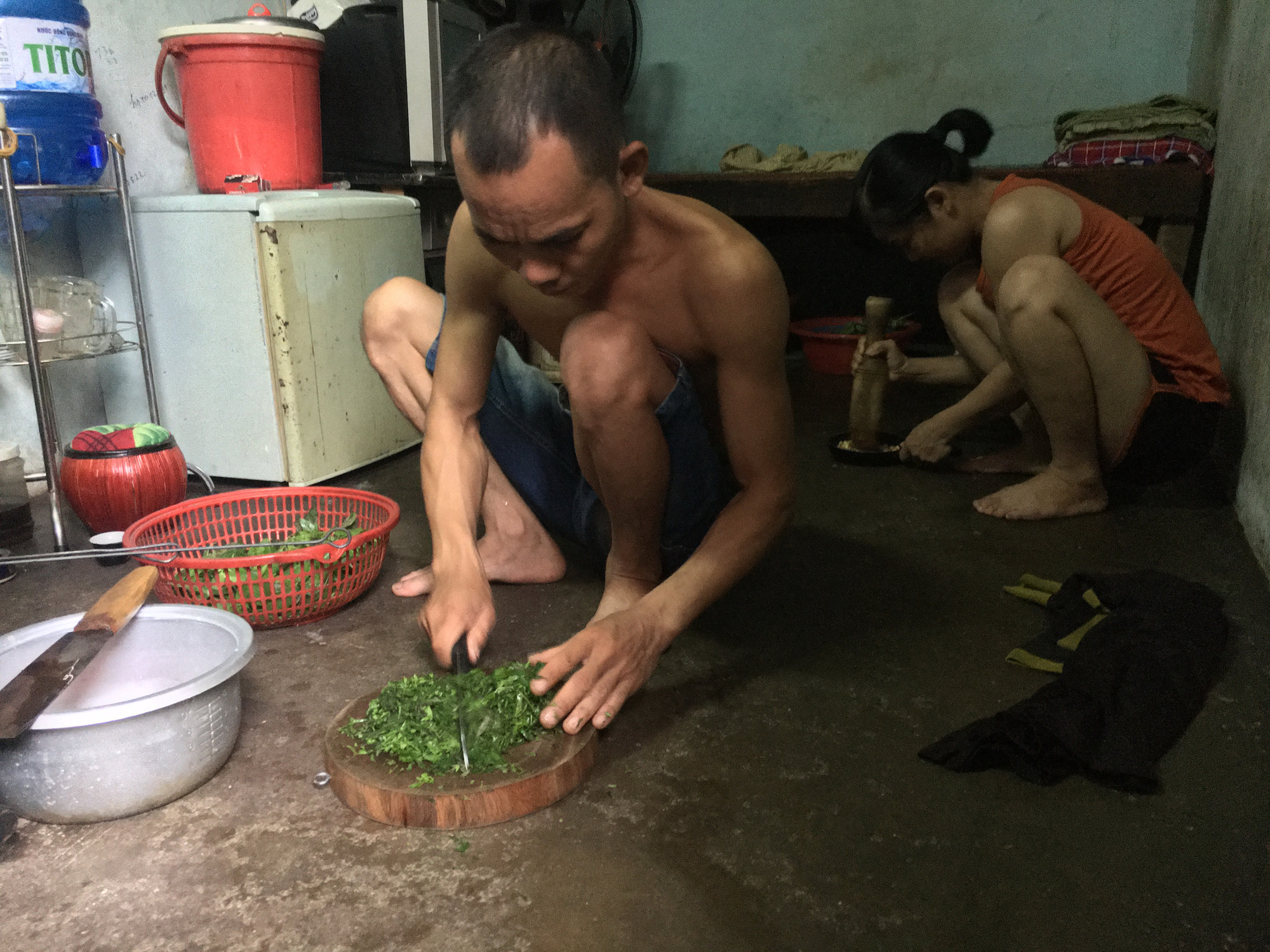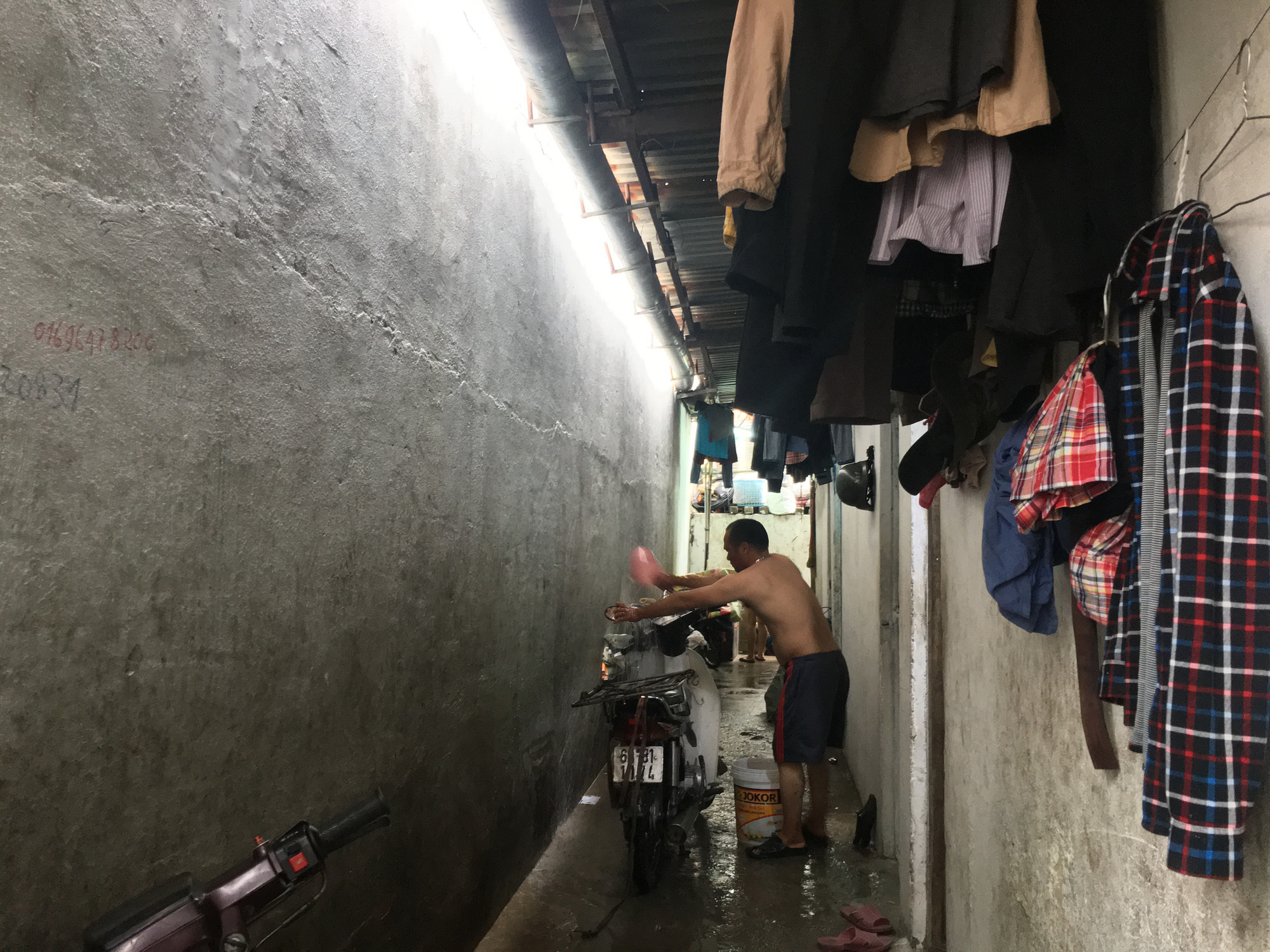In the tiny alleys along the Vam Thuat River in Go Vap District, Ho Chi Minh City, internal migrants from the north have dwelled for generations.
Nguyen Thi Hoa, one of the residents here, says that a big joy of their lives can be a simple cozy family meal.
“It’s really tight here, but all the family members get together," Hoa said.
"Even my older children now can help out in the house."
The land of domestic migrants
Dozens of internal migrant families settle in Quarter 2 of Ward 15, Go Vap District.
The migrants are from northern localities like Vinh Phuc, Thanh Hoa, Hai Phong, and Hanoi. The majority of them are from artisan villages in Vinh Phuc Province.
As most of the settlers make their living collecting and selling scrap, many have taken to calling this neighborhood one of 'the scrap alleys.'
But they also do other odd jobs. In one family, the wife deals scrap while the husband works at a factory or construction site, depending on what is available.
In another, the wife and husband take turns between the day and night shifts to sell scrap.
The waste products dealt with around here include plastic objects for recycling, plastic bags, brass, and electrical appliances.
“But basically we just collect and sell anything that people throw away,” says Nguyen Thi Hue, one of the migrants.
“We cherish every single penny we can get.”
Many also pick up discarded stuff and bring home for their family use, and only sell away things that have completely fallen out of use.
Most houses have a bicycle with large baskets on the back parked neatly in front.
Over the years, their place has been worn out by the harsh weather. Rainwater drips in on a rainy day through holes in the roof.
“Sometimes we even have to put on our raincoats indoors,” said one resident.
Their stories
Le Thi Huyen, 54, is among the first wave of settlers from Vinh Phuc Province to head for Ho Chi Minh City in the late 1980s. The northern woman has lived in the southern metropolis for nearly 32 years now.
Early domestic immigrants like Huyen started off with the scrap job and, seeing how profitable it could get, their family members from the north began to move here too.
As with most other jobs, their ‘business’ also suffers greatly during the novel coronavirus disease (COVID-19) epidemic.
On a bad day, they earn just under VND100,000 (US$4.30).
“Sometimes we set off as early as 7:00 am and work until noon, but couldn’t earn much,” Huyen said.
“And then it rained for the evening, so we had to get back home.”
Hue and her husband left Vinh Phuc Province for Ho Chi Minh City in the 2000s.
The monthly rent at that time was a few hundred Vietnamese dong, but now it is nearly VND1 million ($43).
They work hard and save up for their children’s school fees.
“We had a bad life, so we have to make sure our children get a good education. That should keep them out of hardship in life,” she said.
Their children still live in Vinh Phuc Province. Every time they get back home, the young kids try to clutch them tight, asking them not to leave.
“Whenever I phone them, they ask me when I will come back home,” Hue said.
She has not been able to give them a proper answer to that question for the last decade.
|
|
| Scrap metal collectors live in tight places along the riverside alleys of Ho Chi Minh City. Photo: Tran Mac / Tuoi Tre |
Nguyen Thi Ha, 53, has been hard at work for years. Her hands bear the marks of scratches from handling scrap metal.
“I’m used to this. I can’t work with gloves on,” she said.
The virus-related financial aid of a few hundred thousand to a million dong in cash each family received from the People’s Committee of Go Vap District as per a government policy was barely enough to keep them afloat during this difficult time.
The dream for a new life
Some of the residents in this neighborhood have become ‘scrap millionaires.’
According to Tuyet, an experienced scrap dealer, the few houses near the entrance to their alley are the largest businesses.
“They even got vans for the job and dozens of people working for them. They’re all from Vinh Phuc Province,” she said.
As the strugglers look at these examples of success, they feel an urge to replicate their businesses and give their children a better life.
Nguyen Thi Hoa’s family has been in Ho Chi Minh City for 20 years. At first, their children stayed with their grandparents in their hometown, but now the kids have moved here as well.
That way, it is easier for them to take care of both work and family.
The people work hard 24/7. Those working the night shift will gather in their alleys at around 3:00 am or 4:00 am for the final categorization of stuff before selling the scrap away.
“We often work the night shift. That way we’ll get to garbage trucks first and collect more things,” said Ngat, one of the workers.
“It’s a really competitive job, though. A little slow and all the trash is gone.”
Like us on Facebook or follow us on Twitter to get the latest news about Vietnam!




















































